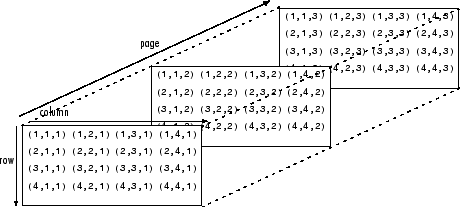pagemrdivide
Description
X = pagemrdivide(B,A)A into each
page of N-D array B. Each page of the output array X
is given by X(:,:,i) = B(:,:,i) / A(:,:,i). The pages of
B and A must be valid inputs to mrdivide (/).
If B and A have more than three dimensions, then
all dimensions beyond the first two must have compatible sizes. pagemrdivide implicitly expands the extra
dimensions to divide all page combinations: X(:,:,i,j,k) = B(:,:,i,j,k) /
A(:,:,i,j,k).
[
also returns an estimate of the reciprocal condition number of each page of
X,rcondA] = pagemrdivide(___)A, using any of the input argument combinations in previous syntaxes.
If rcondA(1,1,i) < eps, then X(:,:,i) = B(:,:,i) /
A(:,:,i) returns a warning because the matrix is ill conditioned. However,
pagemrdivide does not issue a warning for ill-conditioned
inputs.
Examples
Input Arguments
Output Arguments
More About
Tips
Results obtained using
pagemrdivideare numerically equivalent to computing the linear system solutions with each of the same matrices in afor-loop. However, the two results might differ slightly due to floating-point round-off error.
